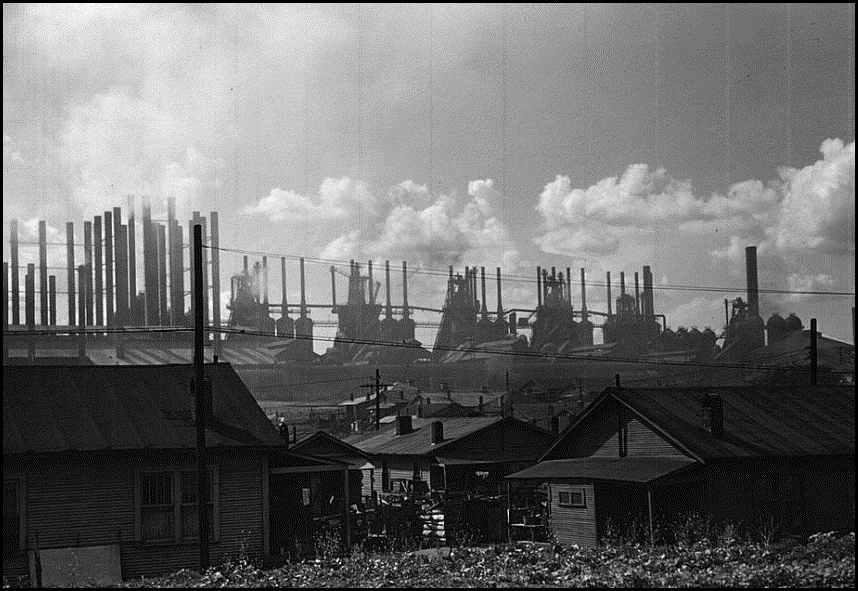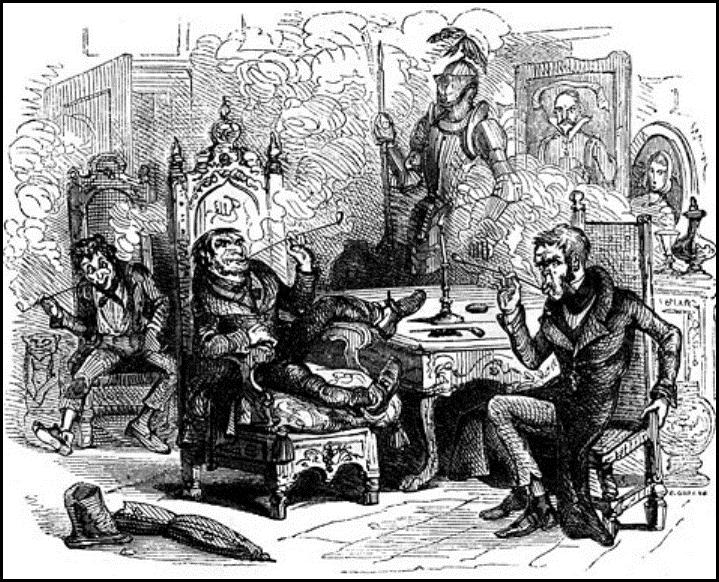
Hard Times
Charles Dickens
Anton Lesser, Reader
(Naxos Audiobooks)

I took this one up with some trepidation, because back when I was stuck at Berkeley doing the English major dance, in 19th Century Lit., there were always assignments of those fat, exhaustive novels, the bountiful Brontës, tireless Thackeray, endless Eliot, always ending up with discursive Dickens.Most of all, we despaired of Dickens, with all his detours and pontificating, plots growing up and out like weeds in the fields, jammed with twisty side-journeys and sub-plots, ever-so-lengthy dialogues, so much so that we knew that to get it read much less getting a paper written and in to professor Quinn on time would be impossible. Especially with the midnight reading over at the hungry i that we had to get to. Thank god this stuff drove me out of that particular dead-end career, to finally become the layabout that I am now.
But now that I have more time on my hands, and can give myself over to the spoken version, I realize what a crafty, canny artist Dickens is. Taking it in this form (someone reading it to us with patience, verve and style) gives us the chance to step back, to be swept away by Dickens' way with words, by his powerful narrative, and the very funny back and forth between the characters.
Now we can get to enjoy, for example, fine prose that reveals the set of an English train station in the Midlands around 1850 or so, framed in such elegant detail as to resemble a sketch by Sargent:
Louisa sat waiting in a corner. Mrs. Sparsit sat waiting in another corner. Both listened to the thunder, which was loud, and to the rain, as it washed off the roof, and pattered on the parapets of the arches. Two or three lamps were rained out and blown out; so, both saw the lightning to advantage as it quivered and zigzagged on the iron tracks.
"The seizure of the station with a fit of trembling, gradually deepening to a complaint of the heart, announced the train. Fire and steam, and smoke, and red light; a hiss, a crash, a bell, and a shriek ... the little station a desert speck in the thunderstorm."
Note the lightning hovered not in the sky but "quivered and zigzagged on the iron tracks," with the "seizure of the station" in "a fit of trembling," amidst "a complaint of the heart."
§ § § Dicken's novels "are works of surpassing genius, thrumming with energy, imagination, and something resembling white-hot inspiration," writes Joyce Carol Oates in a recent New York Review of Books:
His gift for portraiture is arguably as great as Shakespeare's, and his versatility as a prose stylist is dazzling.
Hard Times is considered by Oates to be one of Dicken's lesser novels. Yet for most of this reading we can become easily transfixed as much by the prose style and the heady dialogue as by the excellent rendering by Anton Lesser. He throws himself into it with such vigor and with such a fine command of class language that it is impossible not to be swept along, wanting more and more and more.
There's that noisy self-made Josiah Bounderby --- pure lying bourgeoisie screw-the-worker factory owner. There's the snooty scaliwag James Harthouse, who is bored but comes to be hot for chilly Louisa (she married, unhappily, to Bounderby). There's shy Sissy Jupe, sneaky trickster Mrs. Sparsit, and young Tom, always referred to as "the whelp."
Hard Times has the distinction of being Dicken's shortest novel, a quarter of the size of most of the others. In my time with it --- and I stayed on with all nine disks, even listened a second time to some of the key chapters --- I was swept away by the characters: honest but poor worker Stephen Blackpool hounded to death; Thomas Gradgrind finding that his insistence on "facts" for his children is not quite enough to sustain them; cool Louisa cornered by a lusting James Harthouse on the country path ... to the point that she can be cool and logical no longer. The vile Harthouse is soon faced down by sweet Sissy, reaching him, as the author craftily reports, so that
He was touched in the cavity where his heart should have been --- in that nest of addled eggs, where the birds of heaven would have lived if they had not been whistled away --- by the fervour of this reproach.
When Dickens wrote this, in 1854, books were rare and expensive, out of the reach of most. The trick in those pre-radio, pre-TV days was to gather the family around your knees of an evening, in front of the fire, and read aloud to them from the writer's magazine, Household Words. Hard Times appeared in several episodes, always stoking you up and leaving you hanging so you'd buy the next issue of the magazine.
Thus, in this Naxos version, we are listening --- as a Victorian family would --- to a tale of the great moil of characters enmeshed in lust and greed and blind certainty and despair and pitiless judgment. And the drama comes very clear in this reading, so much so that I was reluctant to give it up, found myself cheering on the girls, booing the men, awe-stricken by the author's fine way with a plot.
There are so many things I want to tell you about it but you and I don't have time or space for a long reconstruction. Let Dickens do that. Nor will I go into the social aspects, even though it's often painted as a protest novel about the workers who slaved at the Midland's mills, caught up in greed of the rich. Forget all that, too.
The dynamic is in the tension of an innocent girl forced by her father into a creepy marriage with a big bore three decades her senior, a man whose very words reveal that he is an over-stuffed fool, a man so plump with himself that he always seems to be on the verge of exploding --- a garrulous old bastard who reiterates his name and social position so often that we wonder if he wonders if he really exists.
Here he is in final altercation with his father-in-law: "Now you look here, Tom Gradgrind," said Bounderby the flushed, confronting him with his legs wide apart, his hands deeper in his pockets, and his hair like a hayfield wherein his windy anger was boisterous.
You have said your say; I am going to say mine. I am a Coketown man, I am Joshiah Bounderby of Coketown. I know the bricks of this town, and I know the works of this town, and I know the chimneys of this town, and I know the smoke of this town, and I know the Hands of this town. I know 'em all pretty well. They're real. When a man tells me anything about imaginative qualities, I always tell that man, whoever he is, that I know what he means. He means turtle soup and venison, with a gold spoon, and that he wants to be set up with a coach and six. That's what your daughter wants. Some of you are of the opinion that she ought to have what she wants, I recommend you to provide it for her. Because, Tom Gradgrind, she will never have it from me.
Of special joy here is the voice of Mrs. Sparsit, a scheming old biddy who strokes Bounderby's ego as often as possible when she is with him, but when she is coming or going from his office, curses his picture hanging on the wall ... calling it (and him) a "noodle."
Dickens had a certain charming touch with names. Blackpool is a long suffering man, plagued with a drunkard for a wife (and no chance to separate from her under the English marital laws of the time). He does swim about in a black pool of despond. Mr Bounderby is certainly a bounder. Mrs. Sparsit is spare and harsh at the same time. Sissy's father is a Jupe, or, better, a jape: a clown to entertain the masses (that's his job in the circus).
When pronounced in the English manner, Harthouse's name comes out as "Hard-house," and he is a hard one. Gradgrind is a grindy sort, grinding along on his path of "facts" and more "facts." And the teacher in his harsh little school needs no explanation: Mr. M'Choakumchild.

--- L. W. Milam